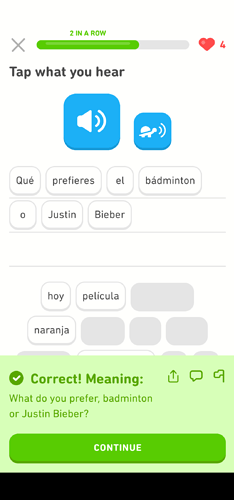My brother had never been to Europe, but is fairly worldly in general and he speaks near fluent Spanish and a decent amount of French. He visited France for a week and Italy for a week (I was with him for the Italian part) and said it was super intimidating speaking in Paris and felt like he was constantly being judged. I speak basic Italian and it was actually a lot of fun in Italy b/c a lot of the workers like to joke around and seemed happy that an American even knew basic phrases.
It definitely makes a big difference the way locals treat you when attempting their language. Mexicans are super gracious as well, and that made learning Spanish there a lot easier. Luckily, I already had high intermediate French when I arrived to France, so I never really experienced any frustration with the locals, but it would have been intimidating arriving with a lower level.
My brother now seems interested in moving to Europe, but is super sensitive to the attitudes of locals, so even though he thinks Paris is the better city, he felt like he’d rather move somewhere in Italy. He asked me about some of the other places I’d visited and how the locals were in those cities.
I don’t know Czech Republic all that well, but I had to tell him that Prague felt way more like Paris. People kinda seem unhappy in general. Like on public transport, old ladies were always scowling, people raising their voices over minor things, etc.
In general, I’d say that Europe is just far more reserved and dare I say “unfriendly”. Italy seemed like an exception, although I only spent 10 days there so who knows. Greeks seemed very kind and Turks were super friendly as well. Those are the 3 main groups I’d put in the friendly category, possibly Portuguese as well.
But it’s all just generalizing, and to be fair, France is the only country I’ve spent more than a year in, and Spain and Turkey the only others I’ve spent over a month in. To be honest, the more abrupt style in France doesn’t really bother me at all. I loved living there, but others (like my brother) are more sensitive to that stuff.
